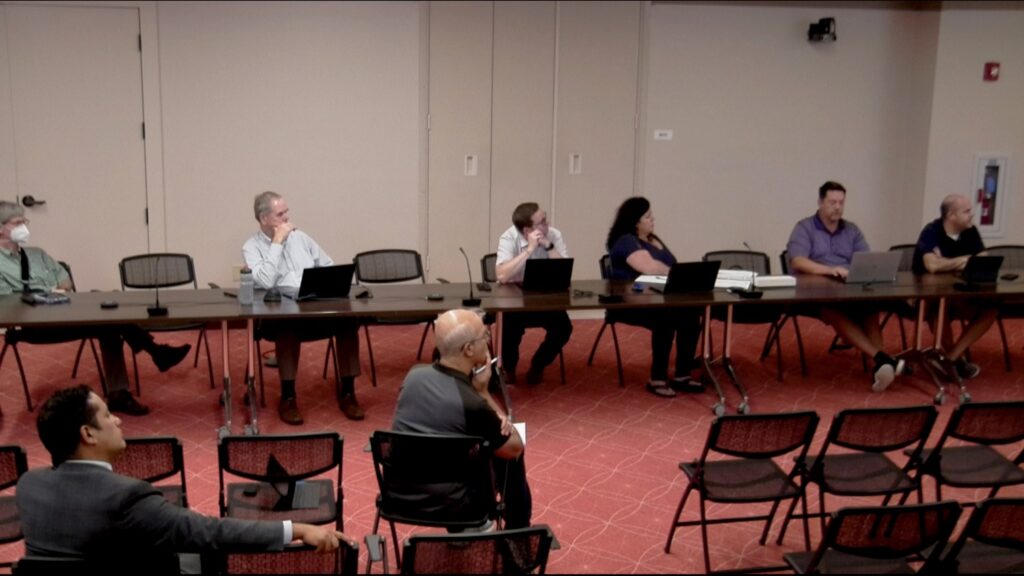
Reading, MA — Reading ARPA Advisory Committee (RAAC) member Thomas Wise presented two possible models for using American Rescue Plan Act (ARPA) funds to provide extra pay to essential town workers who were required to work in person during the pandemic. Workers in this class include public safety officers, teachers, DPW workers, and several other groups. Wise and member Shawn Brandt developed the models.
Wise shared that both models provided for persons on staff from March 2020 to June 2021. Those who worked during these dates and retired during that time are provided for in the models, but those who left employment in Reading during that time are not.
The first model bases a potential payment on the pay levels of the individual; groups whose base pay is lower than average will receive greater compensation, while groups in the higher salary range would receive less. According to Brandt, this concept matches the original ARPA guidance, which sought to help those who were most adversely impacted by the COVID-19 pandemic.
The second model is similar to the first but also adds the factor of how much risk employees experienced during the pandemic. Wise indicated that an administrator who was in-person but did not have much contact with the public would receive lower compensation in this model than a first responder with high public contact.
“Conceptually, [the models] hit on the key points that [the RAAC] talked about,” Wise stated. Brandt agreed regarding the first model, “I think this approach represents what [the RAAC] is coalescing around,” Brandt concluded.
After discussion, the RAAC was split as to which model to use. Brandt argued for the first model, stating that things like amount of risk are too subjective to determine and could pit co-workers against one another. “The intent is not only to compensate for physical risk,” Brandt concluded. RAAC member Geoffrey Coram stated a preference for the model that factors in risk, perhaps using a low differential to determine risk.
The RAAC will reopen the discussion at its September 6 meeting.
Michael Fiorentino, speaking for AFSCME, a union that represents town employees in the facilities department, school custodians, cafeteria workers, DPW workers, and some Reading Municipal Light Department employees, asked the RAAC to consider his workers when determining extra pay. He asked the RAAC to take into account that “these folks kept things working” during the pandemic.
Union member and Town Senior Engineer Alex Rozycki asked the RAAC to consider this question, “Did that department or union serve their function to the Town of Reading at a time when it was needed” when determining if compensation was due. Rozycki used the example that the lights still came on, and the water still came out of the faucets during that time. Rozycki implied that the size of the recognition was not important, “Any amount [of extra pay] will be met with sincere gratitude,” Rozycki shared.
After discussion regarding how to proceed from this point, the RAAC adjourned at 9:15pm.
